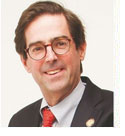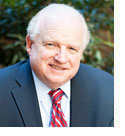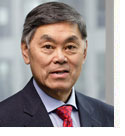Time
5:15 PM – 6:00 PM Reception; 6:00 PM – 7:30 PM Presentation
Venue
The New York Academy of Medicine, 1216 Fifth Avenue at 103rd Street, New York, NY 10029
Cost
Free, but advance registration is required
Paul Francis, JD, New York State's Deputy Secretary for Health and Human Services, will present on the progress of state health reform initiatives and what’s next for New York State health reform efforts, such as the Medicaid reforms, State Innovation Model program, Prevention Agenda and payment and delivery system innovations. Panelists Neil Calman and Benjamin Chu will add their perspectives from practice and policy advocacy.
About the Keynote Speaker
 Paul Francis, JD, who became the Deputy Secretary for Health and Human Services under Gov. Andrew Cuomo in July 2015, has a varied background in both business and government. He previously held three other positions in New York State government. Paul served as the Director of the Budget under Gov. Eliot Spitzer, Director of State Operations during Gov. David Paterson’s first legislative term, and Director of Agency Redesign for Gov. Cuomo in 2011-12. Paul’s business career includes serving as the Chief Financial Officer of both Ann Taylor Stores Corporation and Priceline.com. Earlier in his career, Paul spent seven years as an investment banker at Merrill Lynch, and between his stints in New York State government, he was the COO of the Financial Products Division at Bloomberg LP. Paul began his career as a lawyer, working for Shearman & Sterling and Skadden, Arps, Slate, Meagher & Flom from 1980-1986.
Paul Francis, JD, who became the Deputy Secretary for Health and Human Services under Gov. Andrew Cuomo in July 2015, has a varied background in both business and government. He previously held three other positions in New York State government. Paul served as the Director of the Budget under Gov. Eliot Spitzer, Director of State Operations during Gov. David Paterson’s first legislative term, and Director of Agency Redesign for Gov. Cuomo in 2011-12. Paul’s business career includes serving as the Chief Financial Officer of both Ann Taylor Stores Corporation and Priceline.com. Earlier in his career, Paul spent seven years as an investment banker at Merrill Lynch, and between his stints in New York State government, he was the COO of the Financial Products Division at Bloomberg LP. Paul began his career as a lawyer, working for Shearman & Sterling and Skadden, Arps, Slate, Meagher & Flom from 1980-1986.
After leaving the Cuomo administration in February 2013, Paul was a Distinguished Senior Fellow at NYU Law School, where he worked on a variety of public policy issues from outside of government. He served as Gov. Cuomo's appointee on three boards – the New York State Health Foundation (as Chairman), the Gaming Facility Location Board, and the Utility Debt Securitization Authority (as Chairman). Paul’s activities involving healthcare included serving on the boards of the New York e-Health Collaborative (the health information exchange of New York State), New Yorkers to Cure Paralysis, Greater New York Hospital Association Ventures, and as Chairman of Interfaith Medical Center in Brooklyn. Paul was also the Co-chairman of the Fourth Regional Plan of the Regional Plan Association during this time.
About the Panelists
 Neil S. Calman, MD, FAAFP, is a Board Certified family physician, and the president, CEO and co-founder of the Institute for Family Health. Since 1983, Dr. Calman has led the Institute in developing family health centers in the Bronx, Manhattan (where he practiced for 38 years) and in the Hudson Valley. Under his leadership, the Institute has been successful in establishing health professional training in medicine, nursing, administration and mental health. In 2012, through an affiliation between the Institute and Mount Sinai, Dr. Calman became Professor and Chair of a new Department of Family Medicine and Community Health at the Icahn School of Medicine at Mount Sinai where family physicians now practice and teach with full clinical privileges in the Mount Sinai Health System and its seven affiliated hospitals.
Neil S. Calman, MD, FAAFP, is a Board Certified family physician, and the president, CEO and co-founder of the Institute for Family Health. Since 1983, Dr. Calman has led the Institute in developing family health centers in the Bronx, Manhattan (where he practiced for 38 years) and in the Hudson Valley. Under his leadership, the Institute has been successful in establishing health professional training in medicine, nursing, administration and mental health. In 2012, through an affiliation between the Institute and Mount Sinai, Dr. Calman became Professor and Chair of a new Department of Family Medicine and Community Health at the Icahn School of Medicine at Mount Sinai where family physicians now practice and teach with full clinical privileges in the Mount Sinai Health System and its seven affiliated hospitals.
For fifteen years, Dr. Calman has been a leader in the national effort to eliminate racial and ethnic disparities in health outcomes, leading to the Institute’s designation by the Centers for Disease Control (CDC) as a National Center of Excellence in the Elimination of Disparities. This work has been supported by funding from CDC and the National Institutes of Health, as well as a number of health care foundations. Dr. Calman’s published essay, Out of the Shadows (Health Affairs, Jan/Feb 2000) details his experiences in dealing with racism in the care of his patients. “Making Health Equality a Reality: The Bronx Takes Action” (Health Affairs, Mar/Apr 2005) describes the community based legislative action that has evolved from this grassroots effort to address institutional racism in medical care. “Separate and Unequal Care in New York City” (Journal of Health Care Law & Policy 2006) reports on the Institute’s investigation of discrimination in NYC hospitals.
In an effort to help create the next generation of leaders in health care, the Institute operates three residency training programs in family medicine designed to train providers to serve the medically underserved, including two in Manhattan, focused on urban communities, and one in Kingston, NY, focused on rural communities. Dr. Calman is a longstanding member of the New York State Council on Graduate Medical Education and the Board of the Community Health Care Association of New York State. He is also a member of the Executive Committee of the New York eHealth Collaborative and was appointed by the Obama Administration as an expert in the care of vulnerable populations to HRSA’s HIT Policy Committee where he served on the Meaningful Use Subcommittee for 5 years. Dr. Calman now co-chairs the Subcommittee on Consumer Engagement.
Through Dr. Calman’s interest and expertise in health information technology, the Institute, in 2002, became one of the first community health center networks in the country to implement a fully integrated electronic medical record and practice management system (Epic), improving both preventive and chronic care treatment outcomes throughout its centers. In recognition of this achievement, Dr. Calman received the prestigious 2006 Physician’s Information Technology Leadership Award, presented by the Healthcare Information and Management Systems Society (HIMSS). In 2007, the Institute received the HIMSS Davies Award in Public Health in recognition of its development of public health functionality into its EHR. In 2008, the New York Times recognized the Institute with its Non-profit Excellence Award in the Use of Technology and Focus on Mission. In 2011, the Institute initiated a project with the National Library of Medicine to hyperlink diagnoses, medication names and test names to the NLM Medline Plus database which is available free in the public domain. This project received a HRSA Innovations Award in 2011 and this free functionality is now in use by EHR users across the country. In 2012, the Institute received the Organization of the Year award from the e-Health Initiative that lauded the organization for innovations that are shared openly with other health care providers, a fundamental principle of everything the Institute undertakes.
Dr. Calman is the recipient of many national awards for his work in public health including the Robert Wood Johnson Foundation’s Community Health Leadership Award, the American Academy of Family Physicians’ Public Health Award, the Pew Charitable Trusts’ Primary Care Achievement Award and the Physician Advocacy Award from the Institute on Medicine as a Profession. He is recipient of the distinguished Kanter Prize from the Health Legacy Partnership and the Felix A. Fishman Award for Extraordinary Advocacy from New York Lawyers for the Public Interest.
 Benjamin K. Chu, MD, a leader in creating patient-centered, integrated healthcare reforms, advises clients on building collaborative partnership relationships, with a focus on quality, service and operational outcomes. Dr. Chu’s experience encompasses direct patient care, population health, public policy and reform, medical education, health system administration, health insurance, culture change, and leadership development.
Benjamin K. Chu, MD, a leader in creating patient-centered, integrated healthcare reforms, advises clients on building collaborative partnership relationships, with a focus on quality, service and operational outcomes. Dr. Chu’s experience encompasses direct patient care, population health, public policy and reform, medical education, health system administration, health insurance, culture change, and leadership development.
For more than 15 years, Dr. Chu led major health systems in Houston, Southern California and New York City. In those roles, he established, expanded and solidified relationships with medical schools; led efforts to reorganize and streamline administrative functions; and implemented programs and processes to improve patient access to high-quality healthcare services.
A physician and public policy advocate, Dr. Chu serves organizations committed to advocacy for access to high-quality patient-centered care. He is chair of the board of directors of The Commonwealth Fund and sits on the board of the National Committee for Quality Assurance. He previously served on the advisory committee to the director of the Centers for Disease Control and Prevention.
In 2015, Dr. Chu was elected to the National Academy of Medicine and has also served as the past chair of the American Hospital Association Board of Trustees and on the board of The Joint Commission.
Dr. Chu’s background includes work in medical education at both the policy and training levels. He was an associate dean at two of New York’s top medical schools and held academic appointments at medical schools in New York and Houston. He received his MD from New York University of Medicine and his MPG from Columbia University, Mailman School of Public Health.
About the Section on Health Care Delivery
The section was formed in 1995 with the purpose of developing educational programs on delivery, policy, and economics of health care and health care management and administration, and providing a framework for developing strategies in health policy. The Section delivers an annual series of lectures here at The New York Academy of Medicine for a diverse audience of New York health care professionals, including clinicians, administrators, and policymakers.
Event series:
Section and Workgroup Events
View our COVID-19 Safety Protocols for attending NYAM public events.